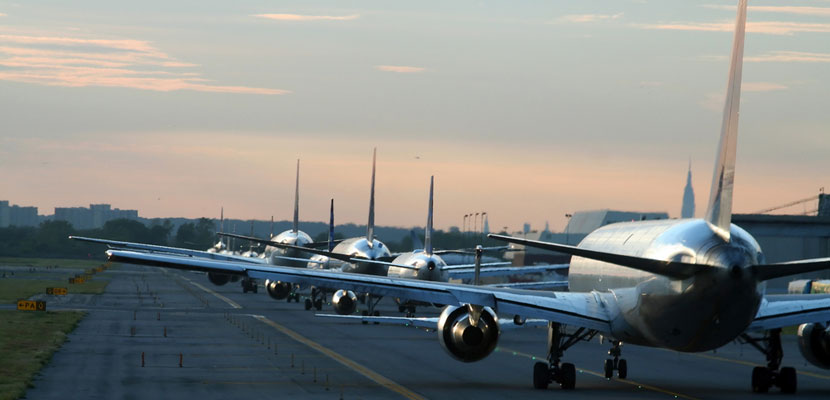As we sit in the height of travel season amidst the COVID-19 pandemic, less travelers are turning to airlines to get them to their final destinations. With the downturn in all travel, airlines are forced to make difficult decisions. British Airlines announced today that it would be retiring its entire fleet of Boeing 747s. The airline has 31 in its fleet and is the largest operator of jumbo jets in the world. British Airlines had planned to retire the 747s in 2024 but accelerated the timeline with current market conditions. Companies like Delta, Air France and United had already retired their fleets. British Airlines is also restricting further by reducing their staff by up to 12,000 employees ranging from pilots to ground crews.
In the U.S., American Airlines and JetBlue Airways are forming an alliance that allows each to sell seats on each other’s flights. The airlines had a similar partnership that ended in 2014. “Airlines have slashed hundreds of routes because of a plunge in air travel demand, particularly for their international networks. Carriers are seeking new ways to cut costs as much as possible as they shrink their footprints, and partnering with another carrier could be an quick and inexpensive way to gain more reach.”[1] Pre-pandemic, Alaska Airlines and American had formed a similar partnership to enhance their attractiveness to business travelers.
Like British Airlines, American announced that it would potentially need to furlough 25,000 employees into the fall unless an extension of the federal payroll support is given into 2021. Those employees would represent just under 30% of their U.S. workforce. United Airlines estimates they would need to cut around 40% of their workforce or 36,000 employees. With an alternate approach and a $5.7 billion loss in Q2, Delta Airlines is urging employees to take a buyout or early retirement instead involuntary furloughs.
Airlines for America and Goldman Sachs are predicting a slower recovery for airline travel. Key points from their data update (https://www.airlines.org/dataset/impact-of-covid19-data-updates/#) are:
- Airline travel will likely not return to 2019 levels until at least 2022
- For the week ending July 12, domestic passenger volumes are down 71% and international is down 90%
- Only Latin America has seen a year over year increase in air cargo volume
As airlines face tough economic challenges, the price of jet fuel is also rising. The Argus average for jet fuel this week has been around $1.14/gallon showing increases from prices in April hovering around $0.50/gallon.
COVID-19 has placed massive amounts of pressure on the airline industry with unprecedented travel restrictions. While airlines scramble to cut costs and save any sort of revenue, global consumers will remain skeptical to fly until there is a solution to the pandemic.
[1] https://www.cnbc.com/2020/07/16/in-a-twist-american-partners-with-jetblue-in-bid-for-new-york-and-boston.html?__twitter_impression=true&recirc=taboolainternal




